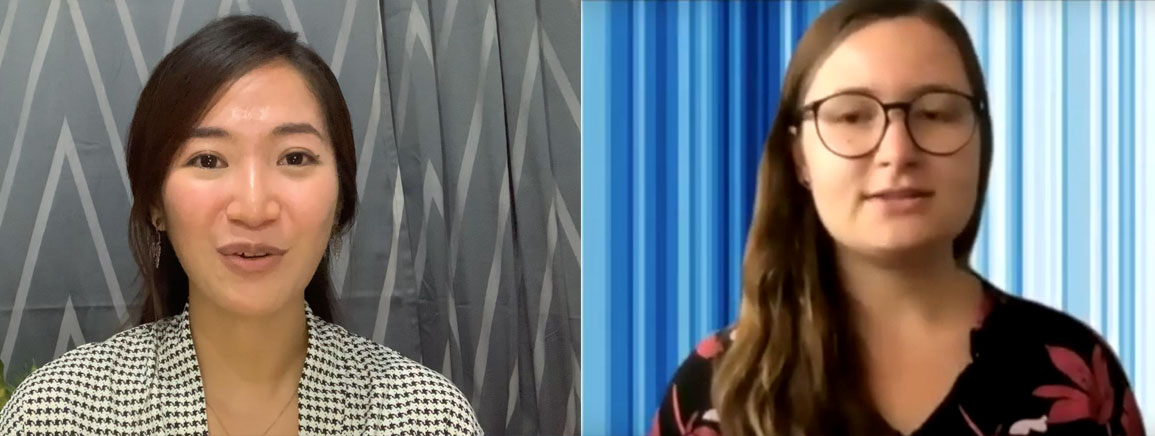Young climate activists Nicole Ponce and Marie-Claire Graf, speaking at the UN High Level Meeting on the Elimination of Nuclear Weapons today (by pre-recorded video statement), called on UN Members to act now to address climate change and nuclear weapons, the two most pressing existential threats to current and future generations.
Ms Ponce and Ms Graf were selected by the President of the UN General Assembly as the two representatives from global civil society to address the High Level event at which over 80 governments were represented, most of them by their President, Prime Minister, Foreign Minister or Defence Minister.
The UNGA President’s selection of climate activists to address such a high-level nuclear disarmament meeting demonstrates a realization from the United Nations that there are strong and important connections between the climate crisis and the threats from nuclear weapons. Ms Graf spoke about these connections:
“We are experiencing the effects of past and current decisions – not made by us youth, but which bind us with you in multiple existential crises, the most critical of which are the climate crisis and the nuclear threat,” said Ms Graf.” Both have trans-boundary and trans-generational impacts. Both require that global cooperation and common security take precedence over national self-interest and militarism. We need to stabilise the climate no later than 2030 and to eliminate nuclear weapons no later than 2045, the 100th anniversary of the United Nations.”
Ms Graf also highlighted the need to shift nuclear weapons and fossil fuel budgets and investments to ethical and impact investment in order to prevent the looming crises and support human security:
“We need to end investments in the nuclear weapons and fossil fuel industries, and reinvest in peace, public health, renewable energy and sustainable development, as called for in Protect People and the Planet, the Global Appeal for a Nuclear Weapon Free World,” said Ms Graf. “Cutting the $100 billion annual nuclear weapons budget is a good place to start.”
Ms Ponce spoke about the vital role law can play in addressing the threats to current and future generations from nuclear weapons and climate threats.
“About 30 years ago a bold global civil society initiative successfully pushed for an Advisory Opinion from the International Court of Justice on Nuclear Weapons,” said Ms Ponce. “The scientists and medics back then were united when declaring nuclear weapons a threat to life on earth.”
“Partly inspired by the resilience and the drive of civil society campaigners advocating for this Advisory Opinion in the 90s, students from the Pacific and Pacific civil society organizations are taking a courageous leap to address the biggest threat facing life on earth and communities today,” said Ms Ponce.
On September 25, the government of Vanuatu announced that they were taking up the proposal of Ms Ponce and World’s Youth for Climate Justice to initiate a UN General Assembly process to take the issue of climate change to the International Court of Justice (ICJ).
“We advocate a question [to the ICJ] that is focused on intergenerational equity and human rights,” said Ms Ponce. “Such an ICJ Advisory Opinion can provide legal clarity and moral authority, provide guidance to national courts and inspire more ambitious climate action. The time is nigh, in our world, amidst the warming of the atmosphere, and the melting of ice, and the rising of the seas, the international Court of Justice must not be silent on the biggest problem of our time.”
Full speeches by Ms Graf and Ms Ponce

